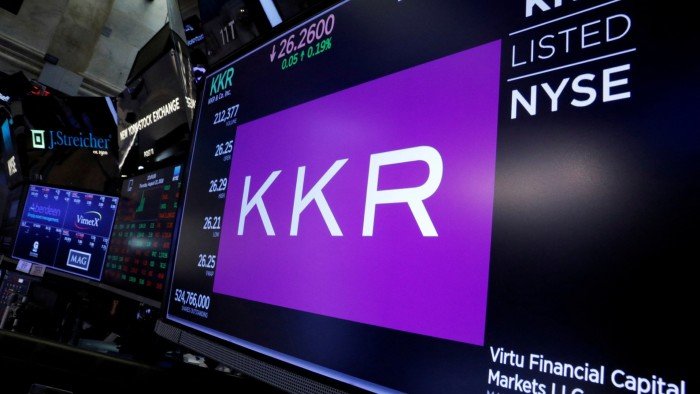One scoop to start: Private equity groups Advent International and Platinum Equity are vying to buy $2bn worth of assets, including the Kevlar bulletproof brand, from DuPont, as the chemicals giant undergoes a wider break-up.
And another thing: An Apollo-backed insurance group is nearing a £6bn takeover of the UK-based Pension Insurance Corporation, a deal that would further push the US alternative assets giant into the UK insurance market.
Welcome to Due Diligence, your briefing on dealmaking, private equity and corporate finance. This article is an on-site version of the newsletter. Premium subscribers can sign up here to get the newsletter delivered every Tuesday to Friday. Standard subscribers can upgrade to Premium here, or explore all FT newsletters. Get in touch with us anytime: Due.Diligence@ft.com
In today’s newsletter:
The KKR vs Advent deal battle in the UK
It’s rare to see two private equity bidders going head-to-head for a buyout deal on the UK public markets.
But that’s how Wednesday kicked off in London, with the news that KKR had topped a bid from rival Advent International with a £4.7bn agreement to acquire the listed industrials group Spectris.
KKR’s takeover deal, which has the unanimous agreement of Spectris’s board, tops a previously negotiated £4.4bn takeover that was announced last month.
Spectris, which makes high-tech instruments for various industries, is a typical if larger target for buyout firms in the UK. It’s a non-flashy FTSE 250 constituent that had traded sideways recently.
Private equity dealmakers have been hunting for targets in the UK’s public middle market, where it can be easier to find attractive deals than in the portfolios of other buyout funds.
Spectris had been on dealmakers’ radars, but Advent took the market by surprise with a deal that represented an 85 per cent premium to the company’s share price before its interest first emerged. KKR’s new takeover agreement represents a 96 per cent premium.
KKR has been increasing its activity in the face of recent market turmoil, and one of its senior dealmakers previously said that Europe is currently experiencing a revival as an investment destination.
“As a consequence of things like the Draghi report [on competitiveness] and tariffs, Europe’s undergoing a bit of a renaissance,” Tara Davies, co-head of Europe at KKR, told DD’s Alexandra Heal in April.
The US buyout firm has pursued several transactions in the weeks since Donald Trump’s so-called liberation day tariff announcements, although some have failed to materialise. It recently walked away from a high-profile £4bn rescue deal for the UK’s largest water company, Thames Water.
It had also sought to buy listed NHS landlord Assura. However, Assura has in recent weeks switched its recommendation to a higher offer from rival Primary Health Properties.
KKR will now undoubtedly be happy to be the one doing the pipping.
Thiel-backed bros build an SVB rival
Silicon Valley Bank’s collapse in 2023 was a body blow for tech start-ups in the US, leaving many fledgling investors without the access to capital that helped the industry boom over the past two decades.
Big lenders such as JPMorgan and newer entrants like First Citizens, which relaunched SVB, have tried to fill the gap in the two years since.
Now a group of billionaires including Peter Thiel are trying to launch their own successor, according to DD’s Tabby Kinder, who scooped the news.
Thiel’s Founders Fund, together with his Anduril co-founder Palmer Luckey and Palantir co-founder Joe Lonsdale, are teaming up to launch and invest in a bank named Erebor, after the famous “lonely mountain” in The Lord of the Rings.
It hopes to become the go-to lender for riskier companies and crypto groups that might be rejected by more rarefied institutions.
The bank’s charter application says it plans to target the “innovation economy”, with a focus on virtual currencies, artificial intelligence, defence and manufacturing.
Those are areas of special interest to the group behind the bank. Lonsdale, Luckey and Thiel are longtime crypto advocates and Anduril and Palantir are both defence tech contractors.
Erebor’s co-founders first discussed launching a bank after SVB’s demise. Its emergence will probably come as welcome news for the early-stage enterprises and venture capital backers that SVB famously bankrolled.
Wall Street did its best to get a slice of the pie after the Valley-based bank collapsed but never matched up to the appeal of the old SVB.
Luckey and Lonsdale aren’t expected to be involved in the day-to-day operation of the bank. Instead it would be run by co-CEOs Jacob Hirshman and Owen Rapaport.
Hirschman previously worked as an adviser at crypto group Circle, while Rapaport is chief executive of Aer Compliance, the digital assets software company he co-founded.
DD hopes that the replica SVB will handle things such as asset-liability management and any potential mismatches better than the original one.
Private equity’s M&A roll-ups reach Silicon Valley
Venture capital firms are taking a page from the private equity playbook, supercharging start-ups with cash and then merging them to achieve scale.
It’s a strategy that’s long been used by PE firms to build industry-conquering conglomerates, but marks a new turn for venture capitalists.
Take Thrive Capital, the group best known for backing OpenAI and Stripe. It’s involved in a $72mn funding round for Savvy Wealth, a wealth management start-up.
That cash will be used to buy up smaller advisory firms, hire individual advisers and integrate AI into the platform’s operations.
And Thrive’s not the only one: General Catalyst, another major VC, has set aside $750mn as part of a plan to roll up call centres, legal services firms and property lettings.
Other groups exploring the strategy include Khosla Ventures, Bessemer Venture Partners and 8VC.
The so-called roll-ups offer VCs a chance to breathe new life into a wave of start-up investments made in the go-go years of 2021 and 2022 that haven’t fully scaled.
Of course, venture capital investors are pinning their roll-up plays on the hot item du jour: artificial intelligence.
While PE roll-ups often focus on striking waves of debt-funded deals and cutting costs, venture capitalists want to use AI to achieve efficiency and higher margins.
Not everyone is convinced.
“I would be sceptical of any strategy that involved transforming a pre-AI business into an AI-based business,” said one US foundation investment head.
He told DD’s George Hammond that the strategy “would require the corporate equivalent of a brain transplant”.
Job moves
-
Goldman Sachs has appointed Raghav Maliah as a chair of investment banking. He will also continue as co-head of M&A in Asia-Pacific and head of the TMT group in Asia-Pacific ex-Japan.
-
Davis Polk has elected seven new partners.
-
Financial Services Forum president and CEO Kevin Fromer has announced he plans to leave the organisation. He will continue until a successor is named.
-
Steven Kelly will join Guggenheim Partners as an adviser to top bankers, Alan Schwartz and Jim Millstein. Kelly joins from the Yale Program on Financial Stability.
-
The Chatterjee Group has appointed Jeremy Ghose as its president. He was previously managing partner and CEO of Investcorp Credit Management.
Smart reads
Tough fix Nike’s sales fell at the second-fastest rate in history last year. Mending the trainer maker will be a marathon, not a sprint, Lex writes.
Dark arts Warner Bros bankers at JPMorgan knew its split would rile up creditors and came up with a strategy to force them into an agreement, Bloomberg reports.
Trump’s money What’s the president’s net worth? Here’s what we know from the latest disclosures, via The New York Times.
News round-up
Paramount agrees $16mn settlement in Donald Trump’s lawsuit against CBS News (FT)
European junk bond sales hit record as investors cut US exposure (FT)
EY broke US audit rules on Shell mandate two years in a row (FT)
Investors fret on talk of AstraZeneca US move (FT)
Deutsche says new banking rules could hamstring Europe’s defence spending (FT)
UK’s City watchdog expands rules on bullying and harassment (FT)
Hong Kong property group’s shares jump after $11bn debt deal (FT)
Shares of health insurers fall sharply as patient care costs jump (FT)
Bumble chief criticises staff for ‘freaking out’ over London job cuts (FT)
Microsoft to cut 4% of staff in new wave of lay-offs (FT)
Due Diligence is written by Arash Massoudi, Ivan Levingston, Ortenca Aliaj, Alexandra Heal and Robert Smith in London, James Fontanella-Khan, Sujeet Indap, Eric Platt, Antoine Gara, Amelia Pollard, Maria Heeter, Kaye Wiggins, Oliver Barnes, Jamie John and Hannah Pedone in New York, George Hammond and Tabby Kinder in San Francisco, Arjun Neil Alim in Hong Kong. Please send feedback to due.diligence@ft.com




